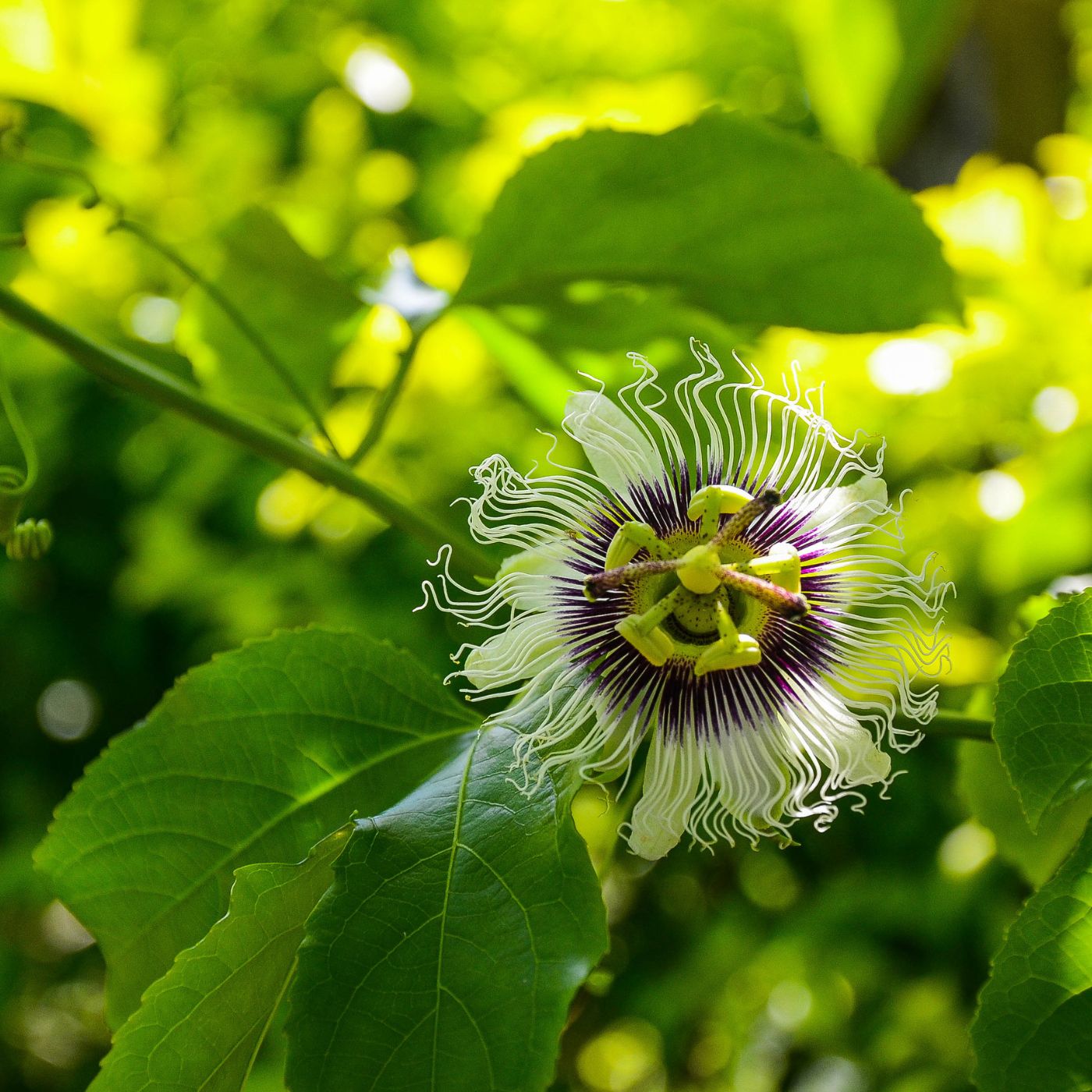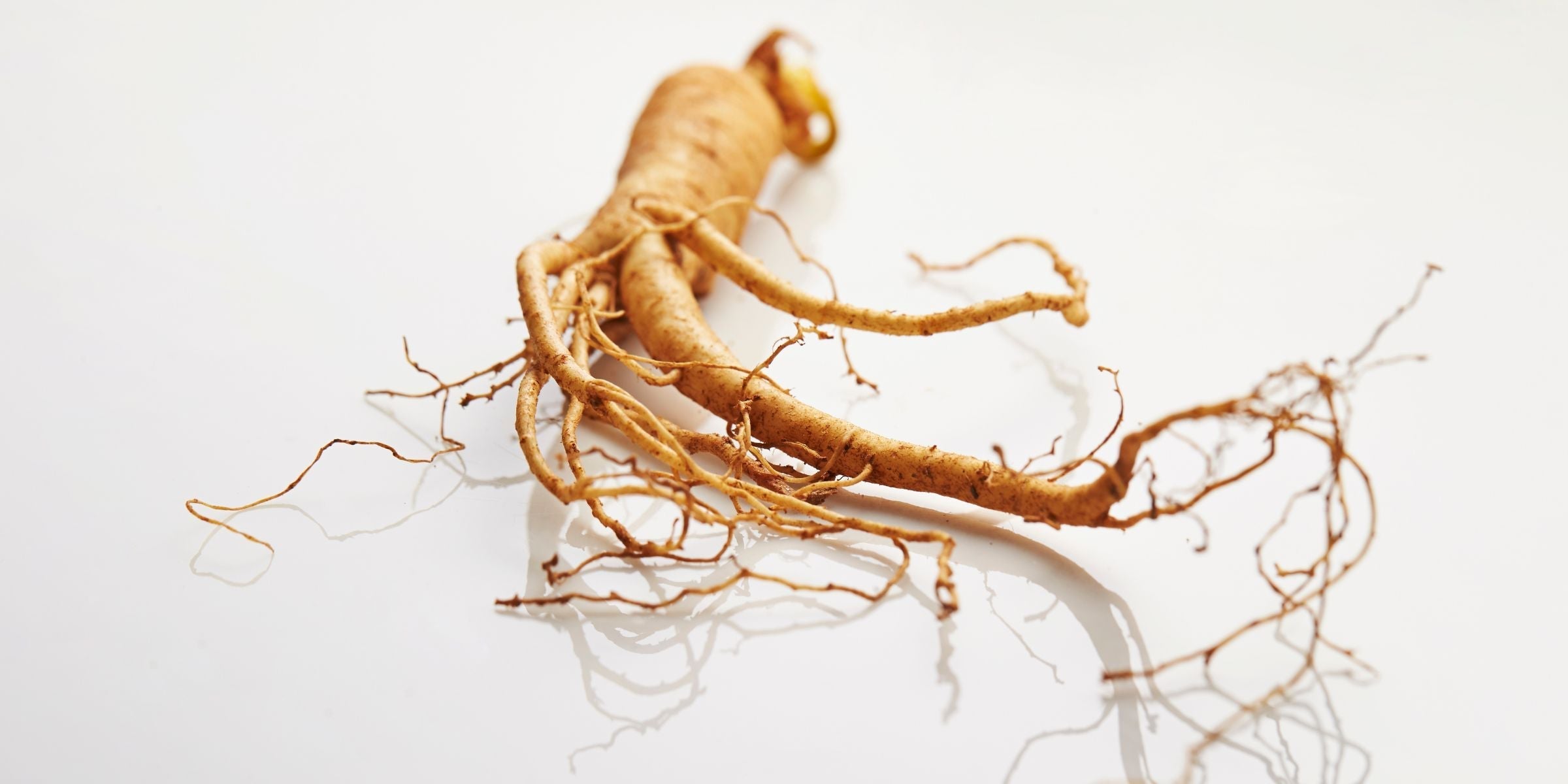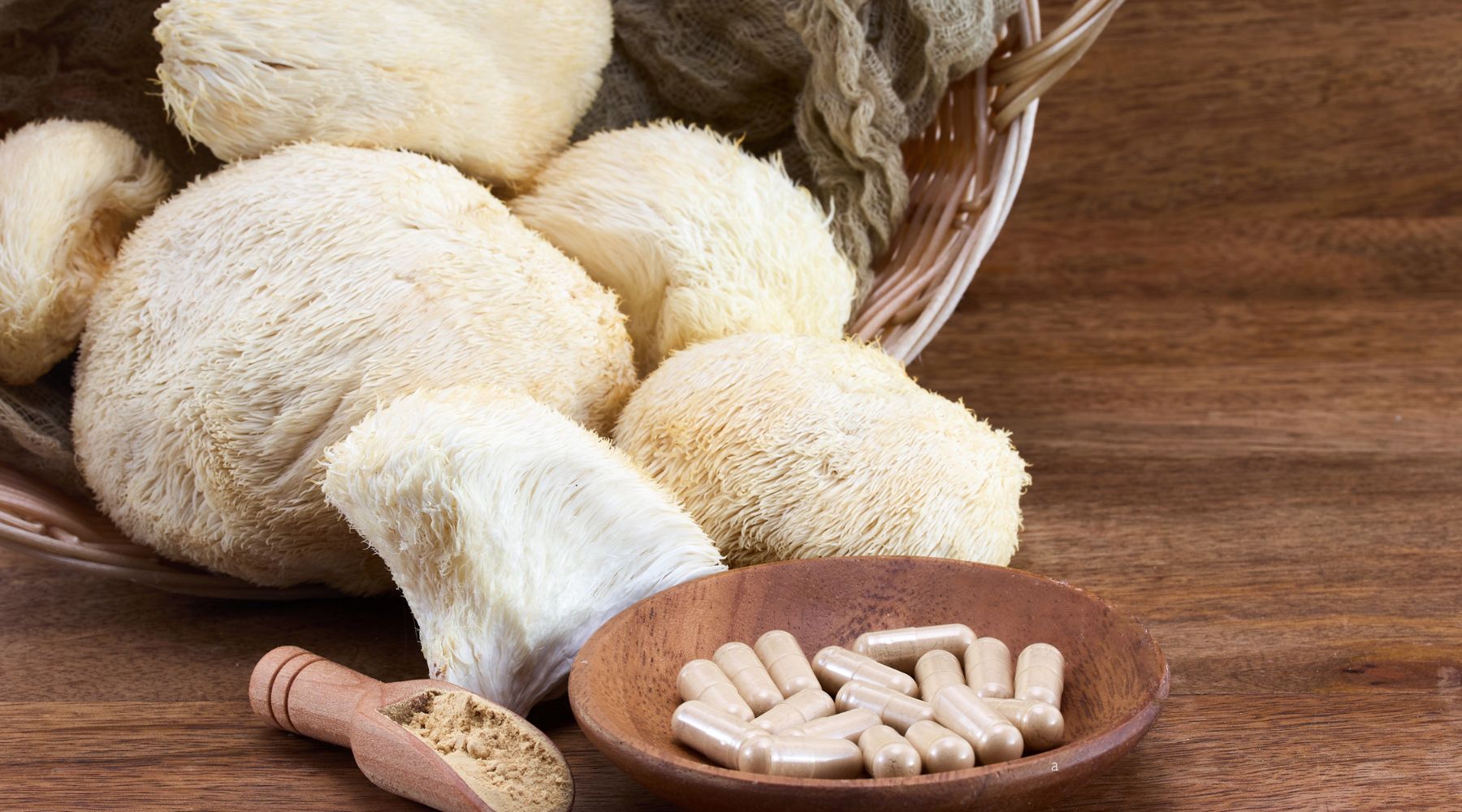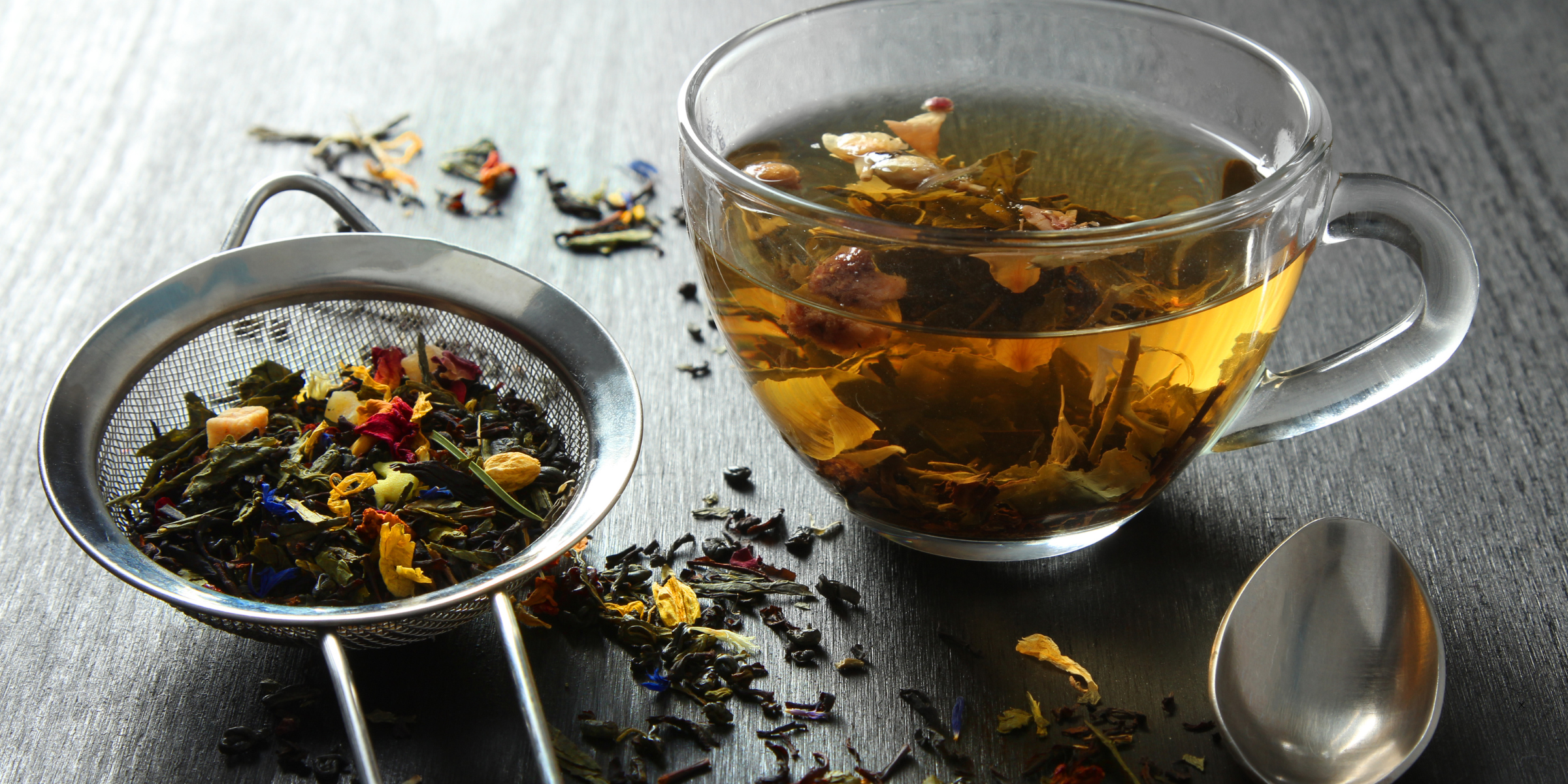
Passionflower
Latin name: Passiflora incarnata
Herb action: Nervine, relaxant,
Parts used: Aerial parts, leaves, stem
Traditional uses: Nervous system support, relieves general and muscle tension, sleep support, mood support, relieves nervous restlessness, stress
Passionflower is classified as a nervine and is used to soothe a frayed nervous system and ease an anxious and overactive mind. It promotes proper and restorative sleep and can help when restlessness, wakefulness, and interrupted sleep are the main concerns.
Studies suggest Passionflower may help manage anxiety symptoms and that its calming effects result from influencing the activity of neurotransmitters such as gamma-aminobutyric acid (GABA), which plays a role in relaxation.
Research suggests Passionflower might offer some relief from menopausal symptoms, such as anxiety and hot flashes. It’s common to see Passionflower combined with other calming herbs, such as California Poppy, Lemon Balm, Chamomile, Hops, and Skullcap.
Agency Botanics and its materials are not intended to treat, diagnose, cure or prevent any disease. All materials on Agency Botanics are provided for educational purposes only. Always seek the advice of your physician or another qualified healthcare provider for any questions regarding a medical condition, and before undertaking any diet, exercise, or other health-related programs.
When to use Passionflower






Shop Passionflower
Blog posts

Six reasons your herbs don't work
Want to discover the full potential of herbal remedies? It's not as simple as taking a pill. Many factors impact how your body responds to herbs.
Read more
Understanding herbal nootropics for brain and cognitive health
Nootropic herbs offer a natural way to enhance mental performance, including cognition and memory.
Read more
Feel stressed? Here's a simple herbal tea recipe that can help bring inner peace and provide a holistic approach to stress management naturally and gently.
Read more

